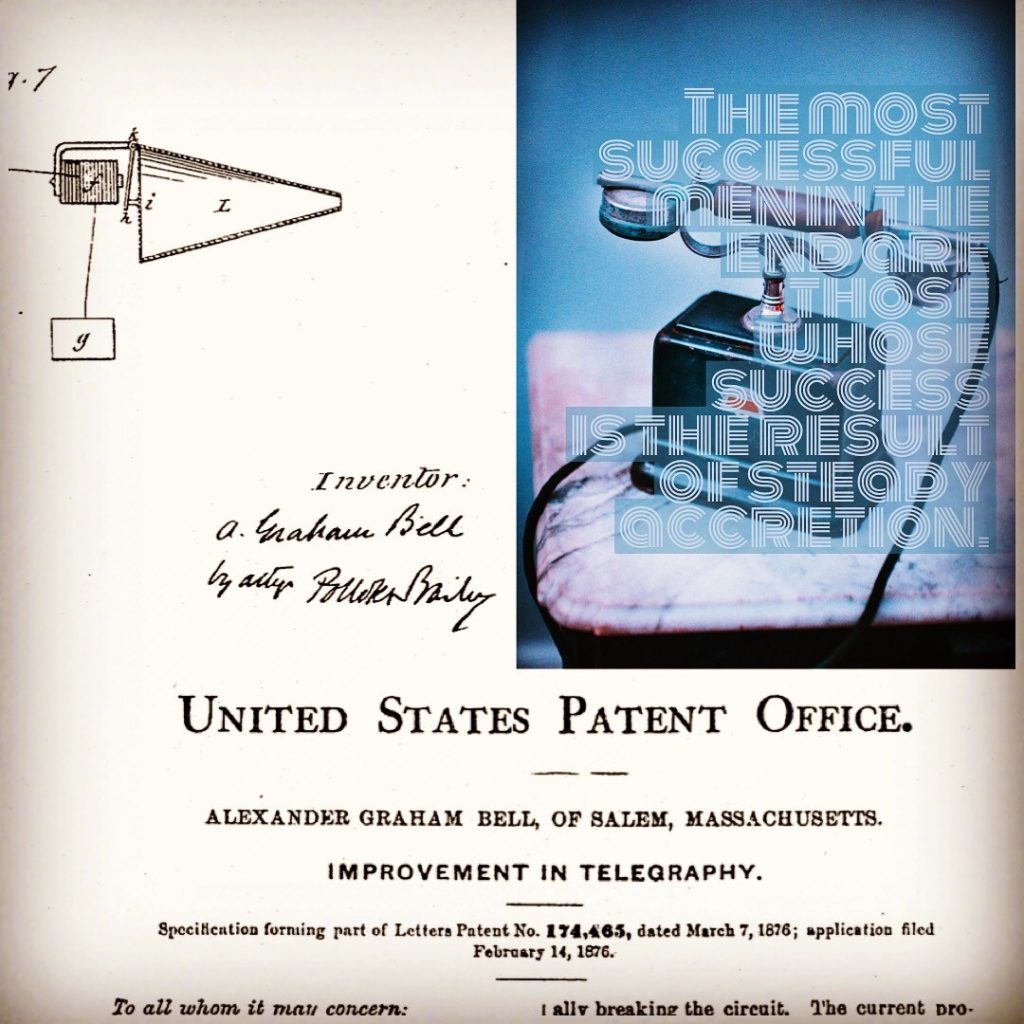Controversy surrounds Alexander Graham Bell’s invention of the telephone. U.S. Pat. 174,465. The same day that Bell filed his U.S. patent application, Elisha Gray filed a patent caveat (similar to a provisional application) describing a telephone.

Gray claimed that his application arrived at the Patent Office a few hours before Bell’s application, but that Bell’s lawyer insisted his application be taken immediately to the examiner. The examiner suspended prosecution to allow Gray to file a full application. Gray, however, upon learning of Bell’s earlier-notarized application abandoned his. Some have commented that that because our patent system was a first to invent, that it did not matter who was first to arrive at the Patent Office.
“The most successful men in the end are those whose success is the result of steady accretion.”
Alexander Graham Bell
While true that it may not have mattered who was first to the Patent Office in this case, many interferences were won or lost over who was the first to file, or “senior party.” The second-filing “junior party” had the burden to prove prior invention, and often this burden was insurmountable. Regardless of who would have been the senior party, Gray’s attorney may have concluded that he would have lost in an interference due to Bell’s strong evidence of priority found in his notarized application filed in the previous month.
